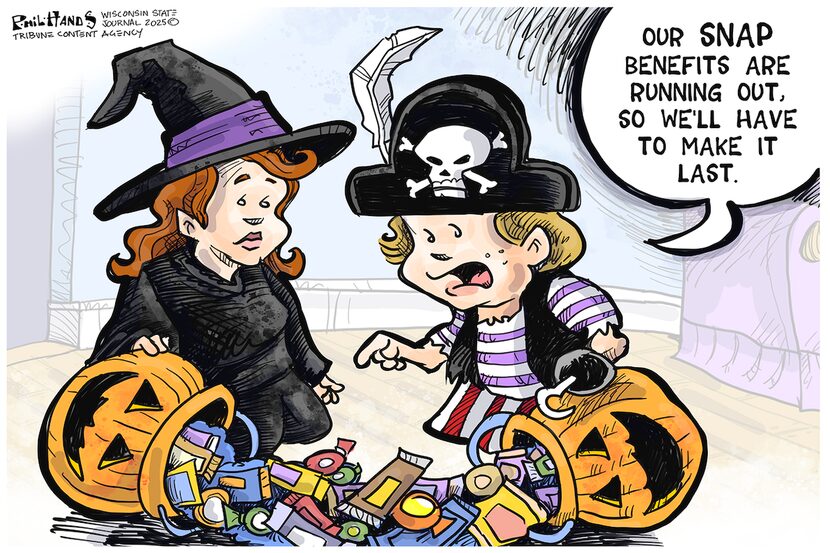Business
Texas Ranchers Challenge Argentine Beef Imports: A Misguided Grumble

Concerns among Texas ranchers regarding the importation of Argentine beef have sparked a significant debate about agricultural policies and market competition. This dialogue, which intensified in September 2023, reflects deeper anxieties about the impact of international trade on local farming practices and economic stability.
The ranchers argue that the influx of Argentine beef undermines their livelihoods and jeopardizes the quality of beef available in the American market. They believe that these imports, often sold at lower prices, create unfair competition. This sentiment is prevalent among many in the Texas agricultural community, who fear that their businesses are being threatened by foreign products.
Some ranchers have expressed their frustrations through public forums and social media, calling for stricter regulations on imports. They claim that without these measures, the future of Texas beef is at risk. The U.S. Department of Agriculture has acknowledged the concerns but maintains that international trade is essential for providing consumers with a variety of choices.
Understanding the Trade Dynamics
The ongoing debate over Argentine beef imports has drawn attention not only from ranchers but also from policymakers. The Federal Trade Commission has been monitoring the situation closely to ensure that competition remains fair and that no undue harm comes to local producers.
Importantly, the Argentine beef industry has experienced a surge in production, leading to increased exports. In 2022, Argentina exported over $3 billion worth of beef globally, highlighting its status as one of the world’s top beef suppliers. This surge places additional pressure on U.S. ranchers, particularly in states like Texas, where beef production is a critical component of the economy.
Ranchers argue that the quality of Argentine beef does not match up to the standards set by American producers. They assert that U.S. beef is subject to stringent regulations regarding animal welfare and food safety, aspects they feel are compromised in imported products. This claim has been met with skepticism by consumers, many of whom prioritize price and variety over origin.
Investing in Local Beef
In light of these challenges, some ranchers are calling for investment in local agriculture to bolster the competitiveness of Texas beef. They suggest initiatives that would enhance marketing efforts, promote local products, and educate consumers about the benefits of choosing homegrown beef.
Local restaurants and grocery stores have begun to respond to this call by emphasizing Texas-sourced beef on their menus and shelves. This shift aims to foster a stronger connection between consumers and local producers, potentially increasing demand for domestic products.
Despite the frustrations expressed by ranchers, experts suggest that a balanced approach to trade could benefit both local farmers and consumers. By maintaining an open market while also supporting local agriculture, the U.S. could harness the strengths of both domestic and international beef production.
As the conversation continues, it is clear that the issues surrounding Argentine beef imports are not only about competition but also about the future of Texas ranching. The need for a collaborative dialogue between ranchers, policymakers, and consumers has never been more pressing. The outcome of this debate could shape the landscape of the agricultural industry in Texas and beyond for years to come.
-

 Science2 weeks ago
Science2 weeks agoIROS 2025 to Showcase Cutting-Edge Robotics Innovations in China
-

 Politics2 weeks ago
Politics2 weeks agoJudge Considers Dismissal of Chelsea Housing Case Citing AI Flaws
-

 World3 weeks ago
World3 weeks agoBravo Company Veterans Honored with Bronze Medals After 56 Years
-

 Lifestyle2 weeks ago
Lifestyle2 weeks agoStone Island’s Logo Worn by Extremists Sparks Brand Dilemma
-

 Health2 weeks ago
Health2 weeks agoStartup Liberate Bio Secures $31 Million for Next-Gen Therapies
-

 Top Stories2 weeks ago
Top Stories2 weeks agoIndonesia Suspends 27,000 Bank Accounts in Online Gambling Crackdown
-

 Health3 weeks ago
Health3 weeks agoTop Hyaluronic Acid Serums for Radiant Skin in 2025
-

 World2 weeks ago
World2 weeks agoHoneywell Predicts Record Demand for Business Jets Over Next Decade
-

 Sports3 weeks ago
Sports3 weeks agoMel Kiper Jr. Reveals Top 25 Prospects for 2026 NFL Draft
-

 Sports2 weeks ago
Sports2 weeks agoYamamoto’s Mastery Leads Dodgers to 5-1 Victory in NLCS Game 2
-

 Lifestyle3 weeks ago
Lifestyle3 weeks agoMary Morgan Jackson Crowned Little Miss National Peanut Festival 2025
-

 Science3 weeks ago
Science3 weeks agoArizona State University Transforms Programming Education Approach









